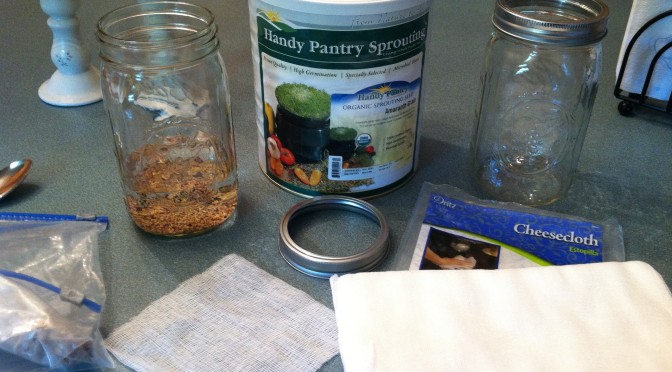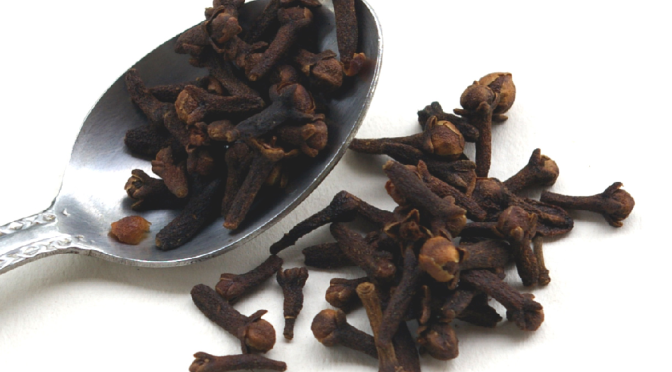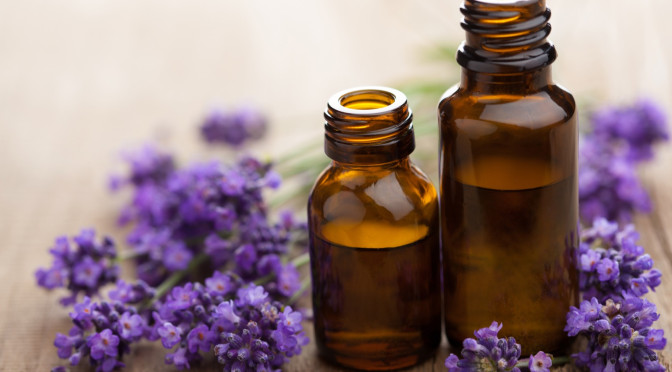From Mrs. Cog's Corner
The content on this page is for discussion purposes relating to health and well being only and is not intended to be medical advice. Links and sources provided are for informational purposes and do not represent an endorsement of a person, product or treatment.
Lavender is a sweet smelling "go-to" oil, as it is mild enough to apply to your skin without diluting. Use it to dab on a bug bite, a minor burn, or to heal skin without scarring and for a multitude of other purposes. At the bottom of this page is a great list for some of the many ways to use lavender.
A famous French chemist and scholar, in 1910 he discovered the virtues of the essential oil of lavender. Gattefosse was working in the laboratories of the cosmetics firm owned and named after his family (of which he was to become head, and which is still in business today). He badly burned his hand during an experiment and plunged his hand into the nearest tub of liquid which just happened to be lavender essential oil. He was later amazed at how quickly his burn healed and with very little scarring. http://www.oilsandplants.com/gattefosse.htm
The German Commission E commended lavender for treating insomnia, nervous stomach, and anxiety. The British Herbal Pharmacopoeia lists lavender as a treatment for flatulence, colic, and depressive headaches, and many modern herbal practitioners use the herb to treat migraines in menopause. In Spain, lavender is added to teas to treat diabetes and insulin resistance. http://wellnessmama.com/7041/herb-profile-lavender/
Studies of the efficacy of lavender from the University of Maryland Medical Center: http://umm.edu/health/medical/altmed/herb/lavender#ixzz2GMmIXyRN
Lavender flower and its extracts have been used, both internally and by olfaction, for centuries as a treatment for anxiety and depression. http://www.naturalmedicinejournal.com/article_content.asp?article=289
Lavender News and Information: http://www.naturalnews.com/lavender.html
Clinical Studies on the effects of lavender essential oil (350+): http://www.ncbi.nlm.nih.gov/pubmed?term=lavender%20essential%20oils
Here are ways to use lavender essential oil. This list has gone viral and been copy/pasted all over the internet. Try as I may, I cannot find the origin of the posting to link or give credit, but I do thank you very much, who ever took the time!
- Rub Lavender oil on the feet for a calming effect on the body.
- Rub a drop of Lavender oil on your palms and then apply to your pillow to help you sleep and for insomnia.
- Put a drop of Lavender oil on a bee sting or insect bite to stop itching and reduce swelling.
- Put 2-3 drops of Lavender oil on a minor burn to decrease pain and help prevent scarring.
- Drop Lavender oil on a cut to stop the bleeding.
- Mix several drops of Lavender oil with olive or coconut oil and use topically on eczema and dermatitis.
- To alleviate the symptoms of motion sickness, place a drop of Lavender oil on the end of the tongue, around the navel or behind the ears.
- To stop a nosebleed, put a drop of Lavender oil on a tissue and wrap it around a small chip of ice. Push the tissue covered ice chip up under the middle of the top lip to the base of the nose and hold as long as comfortable or until the bleeding stops (do not freeze the lip or gum).
- Rub a drop of Lavender oil over the bridge of the nose to unblock tear ducts.
- Rub Lavender oil on dry or chapped skin.
- Rub a drop of Lavender oil on chapped or sunburned lips.
- To reduce or minimize the formation of scar tissue, massage Lavender oil on and around the affected area.
- Rub 2 drops of Lavender oil over the armpit area to act as a deodorant.
- Rub a drop of Lavender oil between your palms and inhale deeply to help alleviate the symptoms of hay fever.
- Rub several drops of Lavender oil into the scalp to help eliminate dandruff.
- Place a few drops of Lavender oil on a cotton ball and place in your linen closet to scent the linens and repel moths and insects.
- Place a drop of Lavender oil in your water fountain to scent the air, kill bacteria and prolong the time between cleanings.
- Place a few drops of Lavender oil on a wet cloth and throw into the dryer which will deodorize and freshen your laundry.
- Put a drop of Lavender oil on a cold sore.
- Diffuse Lavender oil to alleviate the symptoms of allergies.
- Spritz several drops of Lavender oil mixed with distilled water on a sunburn to decrease pain.
- Drop Lavender oil on a cut to clean the wound and kill bacteria.
- Apply 2-3 drops of Lavender oil to a rash to stop the itching and heal the skin.
- Apply 1-2 drops of Lavender oil in your iron to freshen your clothes.
- Apply 1-2 drops of Lavender oil on a wet cloth and place in the dryer for an all natural dryer sheet.
- Rub Lavender oil on the back of your neck, chest, and in between your eyes to alleviate sinuses, sinusitis, allergies.
- Add Lavender oil to your recipes. (Lavender Blueberry Banana Bread)
- Add drops of Lavender oil to your favorite beverage: tea or lemonade.
- Rub a drop of Lavender oil on your temples to alleviate a headache.
- Rub a drop on the base of the neck to relieve stress and anxiety.


